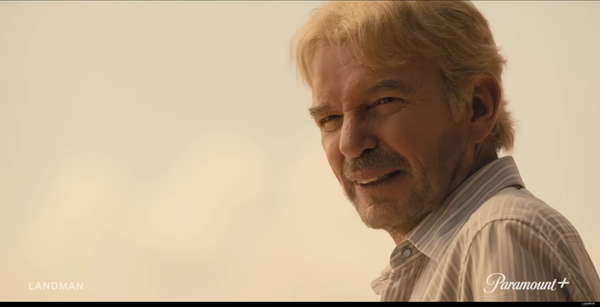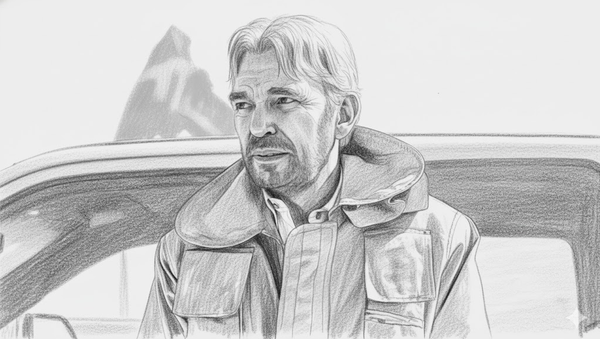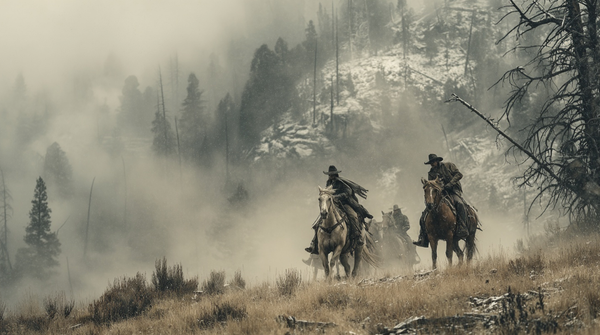The Cruel Optimism of the Yellowstone Ranch
In the vast, unforgiving landscape of the American West, as imagined by the showrunner Taylor Sheridan, happiness is often a fleeting mirage. To watch his prequel series to the popular drama Yellowstone—first 1883 and now the Harrison Ford and Helen Mirren-led 1923—is to coöperate in an exercise of sustained, almost spiritual, unease.
Following the conclusion of 1923’s first season, a murmur of dissatisfaction arose online, with some viewers decrying its brutal, unresolved ending as a narrative misstep. Yet such a view misreads the very grammar of Sheridan’s universe. The final episode was not a failure of storytelling but its apotheosis; a wrenching, brilliant crescendo that, in its tragic grandeur, solidifies the Dutton family saga as a formidable entry in the canon of American myth-making.

The genius of that finale lies in its contrapuntal structure, weaving together the fates of its characters through two distinct but spiritually linked torrents of action. On one front, in Montana, Sheridan orchestrates a triptych of violent set pieces: a shootout at a train station, a desperate defense of the family homestead. The sequences are executed with a visceral, almost balletic, precision that accelerates the heart rate. But their true power is not merely in their technical bravura; it is in their feeling of cathartic release. The battles serve as a physical manifestation of the accumulated trauma and simmering grief that have plagued the Dutton clan for generations, a bloody eruption of long-suppressed anguish.
Simultaneously, at sea, the episode delivers a quieter, though no less devastating, blow. The story of Spencer Dutton, the family’s prodigal son and a veteran of the Great War, and his spirited British bride, Alexandra, or Alex, had been the season’s romantic ballast. Their separation—he cast adrift, she detained by a scorned aristocrat—is not a death, but a rending of the soul that feels sharper than one. Alex’s presence had been like a comet streaking across the show’s dusty plains—arrogant, luminous, and thrillingly alive. Her forced departure is an act of equal and opposite force, a testament to her fierce will even in defeat. She is not erased, but rather transformed into a living ghost, a loss made all the more profound for its lack of finality.
It is a principle well understood by dramatists that what is lost is cherished more fiercely than what is possessed. By denying his characters, and his audience, the solace of reunion, Sheridan engraves Alex’s image onto the narrative more deeply than any simple happily-ever-after could. Her absence becomes a character in itself, shaping the stoic resolve of the family’s matriarch, Cara Dutton, portrayed by Mirren with a magnificent, weary fortitude. One intuits that Cara, more than anyone, recognizes the untamable spirit in her nephew’s wife; in Alex’s defiant gaze, she likely sees a reflection of her own younger self, a woman forged by the harsh calculus of frontier survival.
Indeed, Alex’s fate feels hauntingly familiar, echoing that of another incandescent woman in the Dutton lineage: Elsa, from the antecedent series, 1883. Elsa was a slash of golden lightning—naïve, poetic, and dazzlingly pure—whose journey toward womanhood was cut short by a poisoned arrow. Alex, by contrast, is a creature of worldly intelligence and unflinching nerve, a woman who braved an ocean and a continent for love, only to have it snatched away at the moment of its seeming triumph. Whether by design or by instinct, Sheridan appears drawn to this archetype of the luminous, tragically fated woman. They are not merely victims; they are the vibrant, ephemeral hearts of their respective stories, and their loss is what consecrates the land their family bleeds to protect.
Sheridan’s method has always privileged character over the mechanics of plot. His pacing can feel, to a sensibility weaned on more frenetic television, almost maddeningly slow. He once remarked that he favors “absurdly simple plots,” which allows him the narrative space to excavate the rich inner lives of his creations. In a Sheridan story, one rarely finds unimpeachable heroes or villains of pure evil. Instead, his characters occupy a vast moral gray area, where good men make ruinous mistakes and their antagonists possess moments of startling dignity. It is this slow, deliberate accretion of detail and moral complexity that makes the Duttons’ struggles feel not just dramatic, but deeply, recognizably human. The world of 1923 is given a further, spectral dimension by the use of Elsa’s posthumous narration, a device that stitches the three distinct series together into a single, epic tapestry, haunted by the voices of its past.
As the second season of 1923 awaits its debut, the Dutton universe has reached a temporary pause. For this writer, the historical prequels have, in many ways, surpassed the contemporary narrative of Yellowstone itself. Perhaps it is a partiality for the period drama, or perhaps it is that the main series, for all its pleasures, has fallen into a somewhat predictable rhythm: a new corporate or political enemy arrives, internal family squabbles ensue, and the Duttons defend their empire through ever-escalating means.
In 1883 and 1923, freed from the boardroom machinations and modern political allegories, Sheridan seems to have located a more elemental and enduring vein of American storytelling. He is chronicling not just the history of a single family, but the violent, painful, and achingly beautiful process by which a nation’s identity was forged. The tragedy is not that his characters lose; it is that they have so much worth losing.



